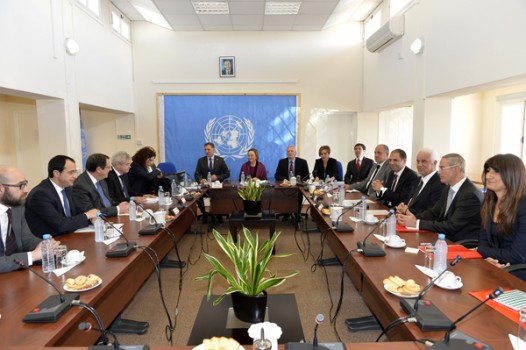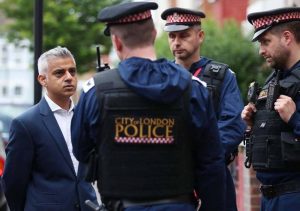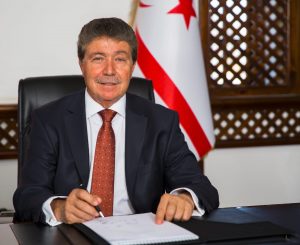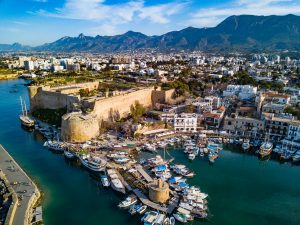Cypriot leaders back at the table
After nearly two years, Derviş Eroğlu and Nicos Anastasiades returned to the negotiating table in Nicosia to try and thrash out a peace deal
PEACE TALKS are underway in Cyprus after the island’s Greek and Turkish leaders agreed to negotiate for the first time in almost two years.
In a joint statement released on Tuesday morning, Derviş Eroğlu, the president of the Turkish Republic of Northern Cyprus, and Nicos Anastasiades, the Republic of Cyprus president, said they wanted a settlement based on “a united Cyprus within the European Union”.
The two leaders met later that morning in the United Nations neutral zone, where they said the status quo of a divided island was “unacceptable and its prolongation will have negative consequences for the Greek Cypriots and Turkish Cypriots”.
They added they aimed to reach a settlement “as soon as possible” and hold separate, simultaneous referendums.
Analysts said the recent finding of oil and gas reserves in the Mediterranean Sea off Cyprus would be an incentive to reach a deal – with some saying it could be achieved in a matter of months.
UN-BACKED TALKS
The two leaders’ joint declaration pledged to work towards a “bi-communal, bi-zonal federation with political equality” with a single international legal personality.
There would also be a single united citizenship, the leaders said, although the individual Greek and Turkish Cypriot constituent states would also feature a form of internal citizenship.
But the most contentious issues over which negotiations will be difficult are power sharing, redrawing property boundaries and the claims of thousands of displaced people.
WASHINGTON’S INVOLVEMENT
The decision to return to negotiations has been widely credited to the sudden apperance of the United States as a broker.
Cyprus specialist James Ker-Lindsay, a professor at the London School of Economics, said the American involvement had “caught many by surprise”.
He told Deutsche Welle: “In recent years, Washington has been rather quiet on Cyprus. The fact that Washington obviously felt that the indications behind the scenes were sufficiently positive to make a renewed effort to try to restart talks worthwhile led to last week’s breakthrough.”
But State Department spokeswoman Jen Psaki played down rumours that the United States would be appointing a special representative of its own to Cyprus, stressing the peace talks were a UN-backed process.
rrrrrrrrrrrrrrrrrrrrrrr
cyprustalks1.jpg The first day of talks were held at the UN buffer zone near the old Nicosia Airport
cyprustalks2a-b-c.jpg Nicos Anastasiades (left) and Derviş Eroğlu
cyprustalks3.jpg Derviş Eroğlu said on his return to the north the talks were a structured process designed to bring a comprehensive solution










